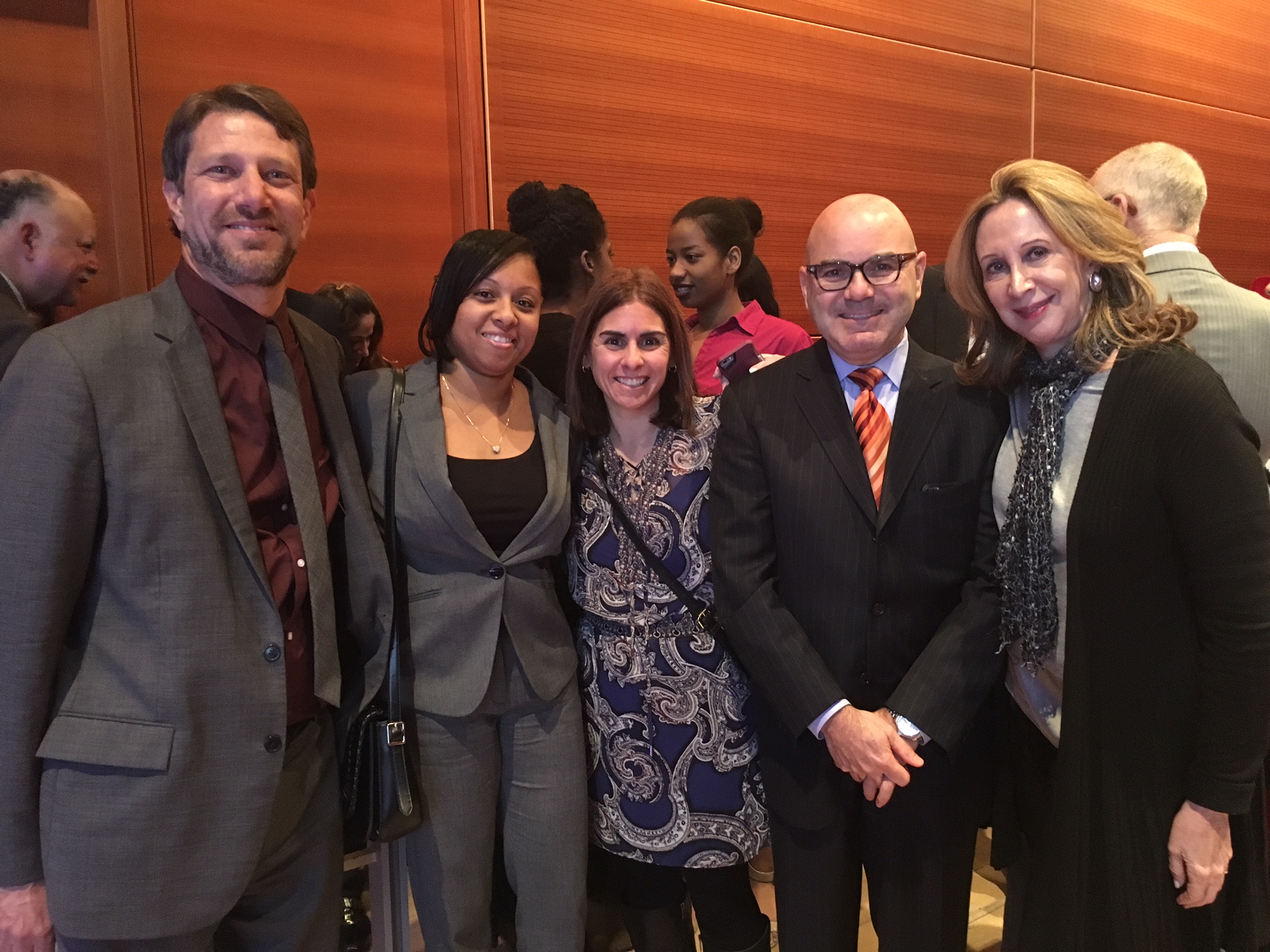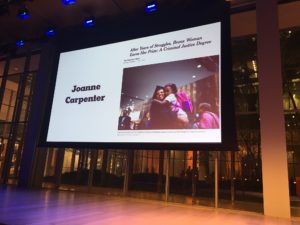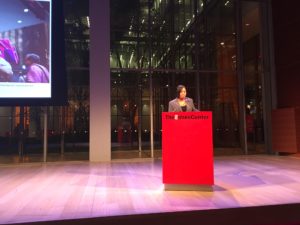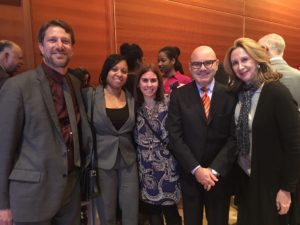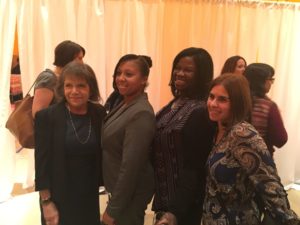Recently, JoAnne Carpenter, a former JCCA client, spoke about her struggles and success at the kickoff campaign of the New York Times Neediest Cases. JoAnne was profiled by the New York Times Neediest Cases in 2003 and was also featured in a New York Times article in 2016 after graduating from CUNY’s John Jay College of Criminal Justice.
Here are some remarks from her talk and responses from a brief interview:
“I had a tough start in life. I moved around from foster home to foster home, while being a teen mother struggling with depression and bipolar disorder.
It was by the grace of God that I ended up becoming a foster child under the care of JCCA. JCCA’s support and dedication for me was unconditional and they have been there to guide me through some of the toughest times of my life. No matter where I went or what I did, JCCA was always there to help me.
Furthermore, the New York Times Neediest Cases’ 2003 article discussed the hardships I faced as a single parent and my determination to go to college and turn my life around for the better. After the article, I received support from a generous donor by the name of Dick Tarlow, who covered my first year of tuition at John Jay College. My college experiences have motivated me to become a civil rights attorney, so that I can assist people living in poverty and families dealing with hardships. I now work for the law firm of Menaker and Herrmann LLP, which has given me an opportunity to gain experience within the legal field prior to attending law school.
Looking back, I have been down some of the loneliest and toughest roads ever traveled, but I have managed to grab on to hope and stay alive with the support of such wonderful people who have stood by me, inspired me and encouraged me to be great. I am so thankful that I am who I am today, but I am even more thankful to see the road that lies ahead of me, which leads me to becoming a civil rights attorney and eventually a Supreme Court Justice so that I may change legislation and make a positive difference for lower-class families such as myself.”
JCCA: How did you feel telling your story to hundreds of people at the New York Times?
JoAnne: I felt phenomenal. I never thought I would be in this type of situation. I got such positive feedback from people in the audience. It made me feel like I can achieve anything.
I also feel that I have been chosen to tell my story to inspire others; I have a responsibility to help others and give them hope by sharing my story.
JCCA: How do you view JCCA today?
JoAnne: Even though I left JCCA’s care many years ago, I will never forget that when I felt alone, JCCA’s wonderful social workers and case workers came into my life and stuck by me and guided me. I am very grateful to all of them — even now. In fact, I have decided to become a mentor at JCCA to help other young people who are facing hardships.
JCCA: What are the next steps in your life and career?
JoAnne: One important step is studying for the LSAT and applying to law school, remaining a great parent, mentor and legal assistant. I also plan to stay committed to advocating for people within my community and making sure my son continues his college education and becomes successful. I want to be a great role model for my children and a great employee to my employer.
JCCA: What advice do you have for young people who are struggling with some of the same issues you faced?
JoAnne: I would tell them not to give up – help is out there — you have to be patient, stay focused and determined and always seek help. Even if you don’t think anyone is out there to guide you and assist you — you CAN find help; I am proof of that!
